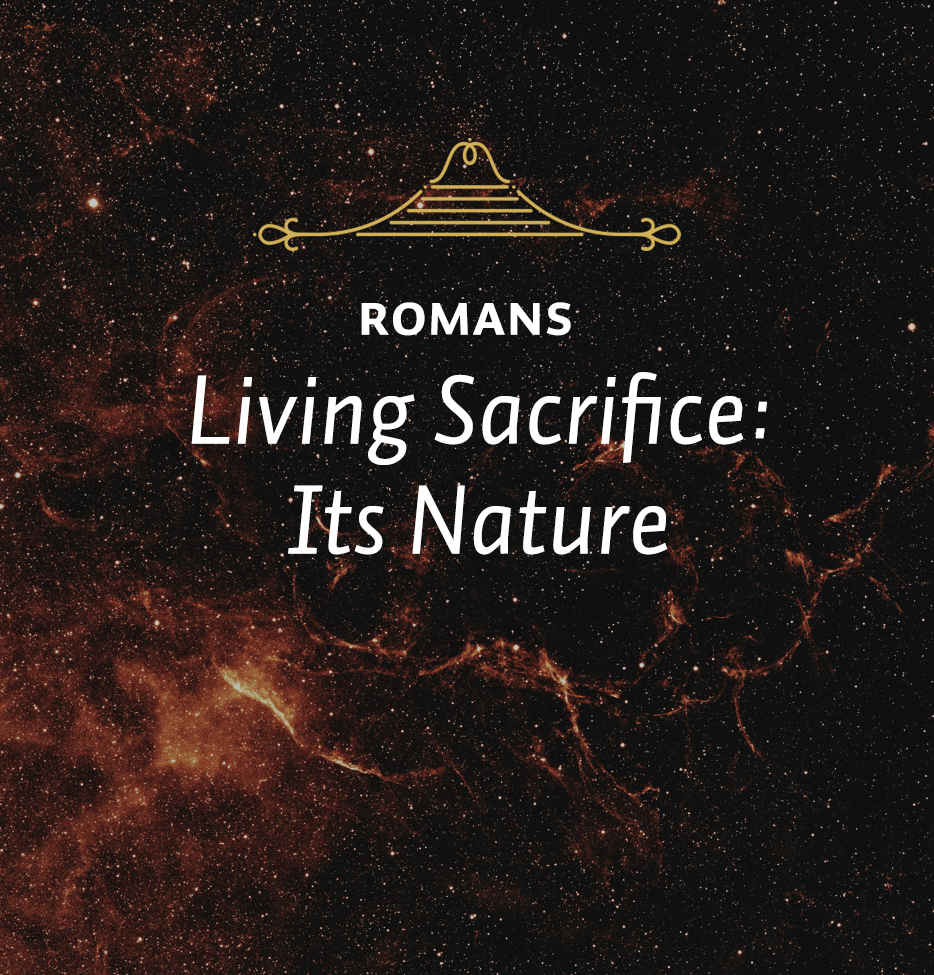What exactly is meant by “sacrifice”? How are we to do it? The first point is the obvious one. The sacrifice is to be a living sacrifice rather than a dead one. This was quite a novel idea in Paul’s day, of course, though we have lost this by becoming overly familiar with it.
In Paul’s day sacrifices were always killed. The animal was brought to the priest. The sins of the person bringing the sacrifice were confessed over the animal, thereby transferring them to it symbolically. Then the animal was put to death. It was a vivid way of reminding everyone that “the wages of sin is death” (Rom. 6:23) and that the salvation of sinners is by substitution. In these sacrifices the animal died in place of the worshiper. It died so that he or she might not have to die.
But now, with a burst of divinely inspired creativity, Paul reveals that the sacrifices we are to offer are not to be dead but rather living sacrifices. We are to offer our lives to God so that, as a result, we might “no longer live for [ourselves] but for him who died for [us] and was raised again” (2 Cor. 5:15).
Living sacrifices, yes. But with what life? Certainly not our old sinful lives in which, when we lived in them, we were dead already. Rather, our new spiritual lives that have been given to us by Christ.
Robert Smith Candlish (1806-1873) was a nineteenth-century Scottish pastor who left us some marvelous studies of the Bible. One set of these studies is of Romans 12, and in it there is a paragraph in which he reflects on the nature of the life we are to offer God. “What life?” he asks. “Not merely animal life, the life that is common to all sentient and moving creatures; not merely, in addition to that, intelligent life, the life that characterizes all beings capable of thought and voluntary choice; but spiritual life: life in the highest sense; the very life which those on whose behalf the sacrifice of atonement is presented lost, when they fell into that state which makes a sacrifice of atonement necessary.1
What this means, among other things, is that we must be Christians if we are to give ourselves to God as He requires. Other people may give God their money or time or even take up a religious vocation, but only a Christian can give back to God that new spiritual life in Christ that he has first been given. Indeed, it is only because we have been made alive in Christ that we are able to do this or even want to.
1Robert S. Candlish, Studies in Romans 12: The Christian’s Sacrifice and Service of Praise (Grand Rapids, MI: Kregel, 1989), 33-34.






